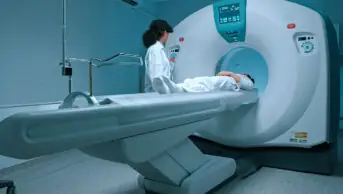
Shutterstock.com
The National Institute for Health and Care Excellence (NICE) has overturned previous draft guidance on elranatamab (Elrexfio; Pfizer), removing restrictions on the use of the treatment for multiple myeloma, following an agreement with the manufacturer to make the drug available to the NHS at a discount.
Previous draft guidance, published in July 2024, recommended the bispecific monoclonal antibody with managed access for adults after three or more lines of treatment, only if pomalidomide plus dexamethasone would have otherwise been offered.
However, in a statement published alongside final draft guidance on 29 October 2024, NICE said that the manufacturer provided further analysis showing elranatamab was cost-effective when compared with two other treatments. As a result, the committee agreed that the previous restriction could be removed.
Elranatamab is now recommended in the final draft guidance as a fourth-line treatment for relapsed and refractory multiple myeloma for patients who have received at least three lines of treatment, including an immunomodulatory agent, a proteasome inhibitor and an anti-CD38 antibody, as well as for those whose cancer had progressed on their last treatment.
The guidance follows NICE’s decision earlier in October 2024 to recommend the bispecific monoclonal antibody teclistamab as a fourth-line treatment for multiple myeloma.
The treatment had previously been subject to the same restrictions as elranatamab.
Both teclistamab and elranatamab work by bringing together immune cells (T cells) and myeloma cells, allowing the T cells to recognise and destroy the tumour cells.
Commenting on the final draft guidance on elranatamab, Caroline Donoghue, senior policy officer at blood cancer charity Myeloma UK, which previously campaigned to overturn NICE’s decision, said: “This is brilliant news. Elranatamab is part of a brand-new class of drugs in the UK and will have a huge impact on patients and their families. In fact, we know that it has already changed the lives of many people who were close to running out of treatment options.
“As soon as we heard about the restrictions on access to elranatamab, we challenged the decision. We believed it was deeply unfair to keep this drug out of reach from those who needed it most. We worked with clinicians and made sure that patients were heard and that their needs were put front and centre.”
“Elranatamab has shown very promising results in clinical trials and allowed some people who have never responded well to treatment to experience their very first complete remission,” Donoghue added.


